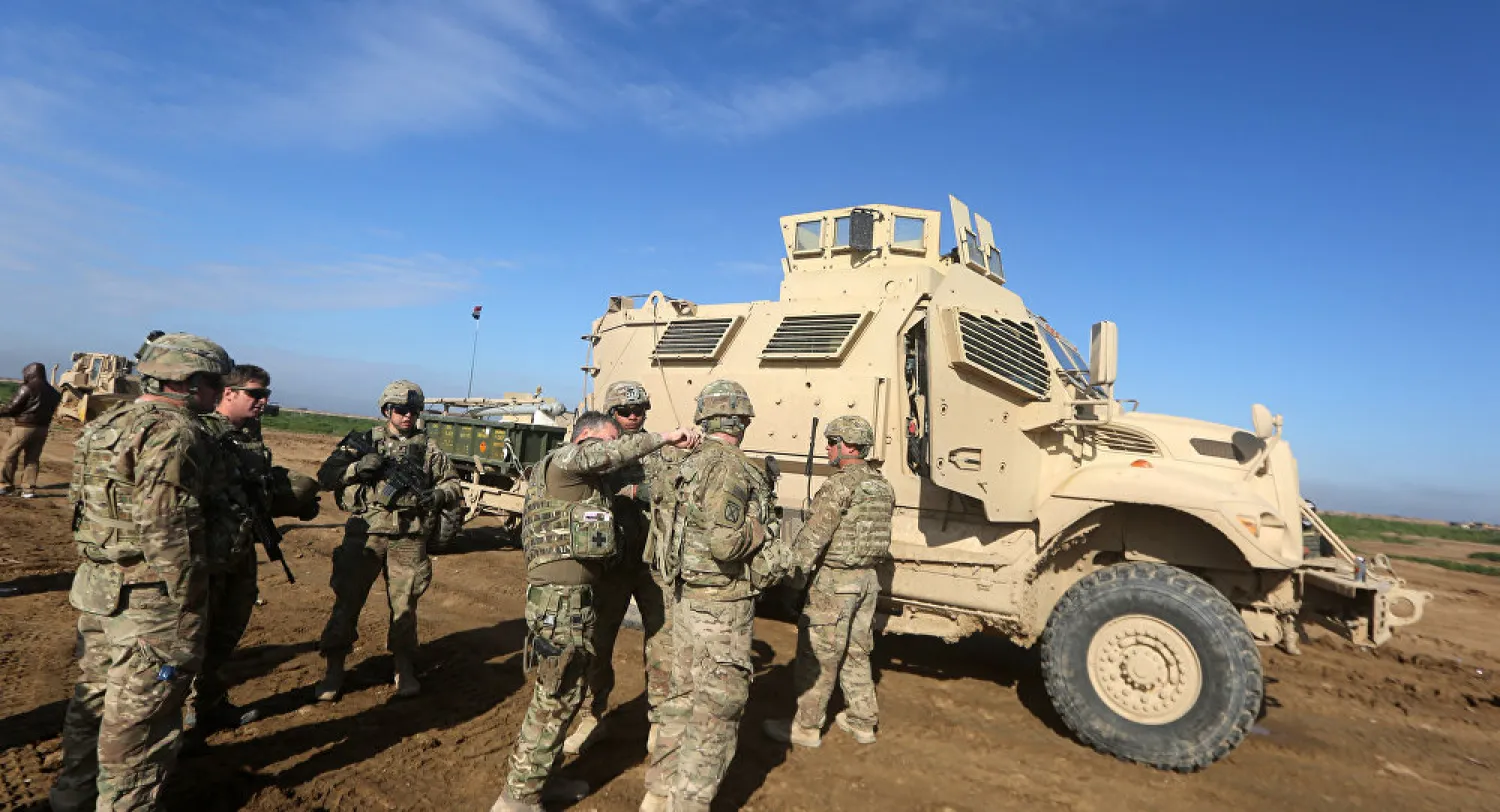Extensive contacts are currently held between Washington, Moscow and Tel Aviv to arrange for Syrian-related deals, including a joint statement to be issued by US and Russian Presidents, Donald Trump and Vladimir Putin in the Finnish capital next July 16.
Western diplomatic sources in London told Asharq Al-Awsat on Saturday that one of the proposals stipulates “trading the US presence, including Al-Tanf military base in eastern Syria, with the Iranian military and militia presence across the entire Syrian territories.”
The sources said Washington hopes to keep the ultra-strategic intersection of the Syrian, Iraqi, and Jordanian borders, to “monitor” the exit of Iran from Syria.
The “Syrian deal” expected to be signed at the Helsinki Summit would be the main component of talks held between Trump and his European allies at the Nato summit next 11-12 July and during the US President’s planned visit to London where he meets British Prime Minister Theresa May on July 13.
However, the sources signaled the presence of two obstacles facing the Syrian talks.
The first is related to the fate of Al-Tanf US military base in Syria as Moscow and Damascus demand that any deal with Washington starts by dismantling the base, considering that Iran’s presence came at the
request of the Syrian government.
Washington linked the presence of Al-Tanf base with the fate of the Iranian presence in southern Syria and with monitoring the departure of Iran’s militias from the country.
As for the second knot, it is related to the definition of the “Iranian presence” in Syria: Will it mean the military basis, militias, Revolutionary Guards, trainers, universities, schools or
religious centers?
The sources said Western countries “are pushing Washington to agree with Moscow on a mechanism and on guarantees capable to monitor the Iranian role in Syria and to avoid repeating the North Korea scenario when reports emerged about a deal reached at the Singapore Summit concerning the Nuclear, to be refuted by contrary information few days later.









